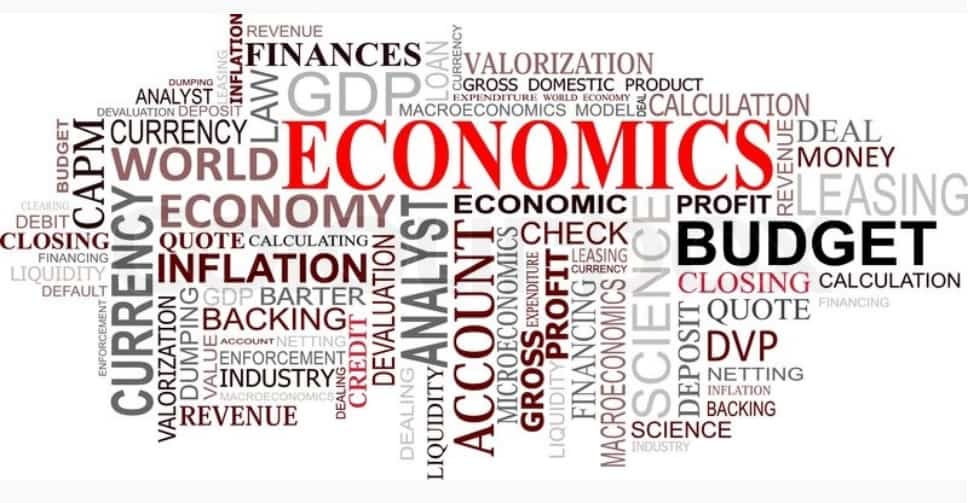Economics is a social science that studies how individuals, organizations, and societies allocate scarce resources to satisfy their unlimited wants and needs. The study of economics provides a framework for understanding various economic issues and problems, such as inflation, unemployment, income inequality, economic growth, and international trade. Economics is an essential subject for anyone who wants to understand the world around them and make informed decisions. In this article, we will explore some of the key lessons that one can learn from economics.
Table of contents
- The Basic Principles of Economics
- Understanding the Economic Systems
- Macroeconomics vs. Microeconomics
- The Role of Government in the Economy
- The Importance of International Trade
- The Impact of Technology on the Economy
- The Economics of Environmental Sustainability
- Behavioral Economics: Understanding Human Behavior
- Applying Economics in Your Daily Life
- Conclusion
- Bibliography
The Basic Principles of Economics
Economics is based on a few fundamental principles, such as the law of supply and demand, scarcity, and opportunity cost. The law of supply and demand states that the price of a good or service is determined by the interaction between the supply of the product and the demand for it. When demand exceeds supply, prices rise, and when supply exceeds demand, prices fall. Scarcity refers to the limited availability of resources, which creates the need to make choices about how to allocate those resources. Opportunity cost is the cost of a decision measured in terms of the next best alternative that must be foregone.
Understanding the Economic Systems
Economic systems refer to the way in which societies organize themselves to allocate resources. There are three main economic systems: market economies, command economies, and mixed economies. In a market economy, prices and the forces of supply and demand determine the allocation of resources. In a command economy, the government controls the allocation of resources. In a mixed economy, both the market and the government play a role in allocating resources. Understanding the different economic systems can help us understand the strengths and weaknesses of each system and make informed decisions about the type of economic system we prefer.
Macroeconomics vs. Microeconomics
Economics can be divided into two main branches: macroeconomics and microeconomics. Macroeconomics deals with the study of the economy as a whole, including issues such as economic growth, inflation, and unemployment. Microeconomics, on the other hand, focuses on the behavior of individuals and firms and how they interact in markets. Understanding the difference between macroeconomics and microeconomics can help us gain a better understanding of the broader economic issues that affect our lives.

The Role of Government in the Economy
The role of government in the economy is a controversial issue that has been debated for centuries. Some economists argue that the government should play a minimal role in the economy, while others believe that the government should play an active role in promoting economic growth and ensuring social welfare. Understanding the role of government in the economy can help us make informed decisions about policies that affect our lives, such as tax policy, government spending, and regulation.
The Importance of International Trade
International trade is the exchange of goods and services between countries. International trade has become increasingly important in recent years, as globalization has led to increased economic interdependence between countries. Understanding the benefits and costs of international trade can help us make informed decisions about trade policy and understand the impact of globalization on our lives.
The Impact of Technology on the Economy
Technology has had a profound impact on the economy in recent decades. Advances in technology have led to increased productivity, which has resulted in higher standards of living for many people. However, technology has also led to job displacement and income inequality due to automation and the concentration of wealth in the tech industry. Understanding the impact of technology on the economy can help us anticipate future trends and make informed decisions about education, job training, and policy.
The Economics of Environmental Sustainability
Environmental sustainability refers to the ability to meet the needs of the present without compromising the ability of future generations to meet their own needs. Economics provides a framework for understanding the trade-offs between economic growth and environmental sustainability. For example, reducing carbon emissions may require investment in renewable energy, which may lead to short-term costs but long-term benefits in terms of reduced environmental damage. Understanding the economics of environmental sustainability can help us make informed decisions about policies that balance economic growth and environmental protection.
Behavioral Economics: Understanding Human Behavior
Behavioral economics is a relatively new field that combines insights from psychology and economics to understand how people make decisions. Traditional economics assumes that people are rational and make decisions based on their own self-interest. However, behavioral economics recognizes that people are often irrational and influenced by factors such as emotions, social norms, and cognitive biases. Understanding the insights from behavioral economics can help us make better decisions and understand why people sometimes make choices that seem irrational.
Applying Economics in Your Daily Life
While economics is often associated with complex mathematical models and theories, it can also be applied in everyday life. For example, understanding the principles of supply and demand can help us make informed decisions about purchasing goods and services. Understanding the concept of opportunity cost can help us prioritize our time and make decisions about how to allocate our resources. Understanding the basics of personal finance, such as budgeting and saving, can help us achieve our financial goals and avoid debt.
Conclusion
In conclusion, economics provides a framework for understanding various economic issues and problems, from personal finance to international trade. Economics teaches us about the principles of supply and demand, scarcity, and opportunity cost, and the importance of understanding economic systems and the role of government in the economy. Understanding macroeconomics and microeconomics can help us gain a better understanding of the broader economic issues that affect our lives. Furthermore, economics can help us understand the impact of technology and environmental sustainability on the economy, and apply the principles of economics in our daily lives. By studying economics, we can make informed decisions and contribute to a more prosperous and sustainable society.
Bibliography
- Mankiw, N. G. (2014). Principles of economics. Cengage Learning.
- Stiglitz, J. E., & Walsh, C. E. (2015). Principles of macroeconomics. W. W. Norton & Company.
- Acemoglu, D., & Robinson, J. A. (2012). Why nations fail: The origins of power, prosperity, and poverty. Crown Business.
- Krugman, P. R., & Obstfeld, M. (2018). International economics: theory and policy. Pearson.
- Brynjolfsson, E., & McAfee, A. (2014). The second machine age: Work, progress, and prosperity in a time of brilliant technologies. WW Norton & Company.
- Stern, N. (2016). The economics of climate change: The Stern review. Cambridge university press.
- Kahneman, D. (2011). Thinking, fast and slow. Macmillan.



 For all latest articles, follow on Google News
For all latest articles, follow on Google News